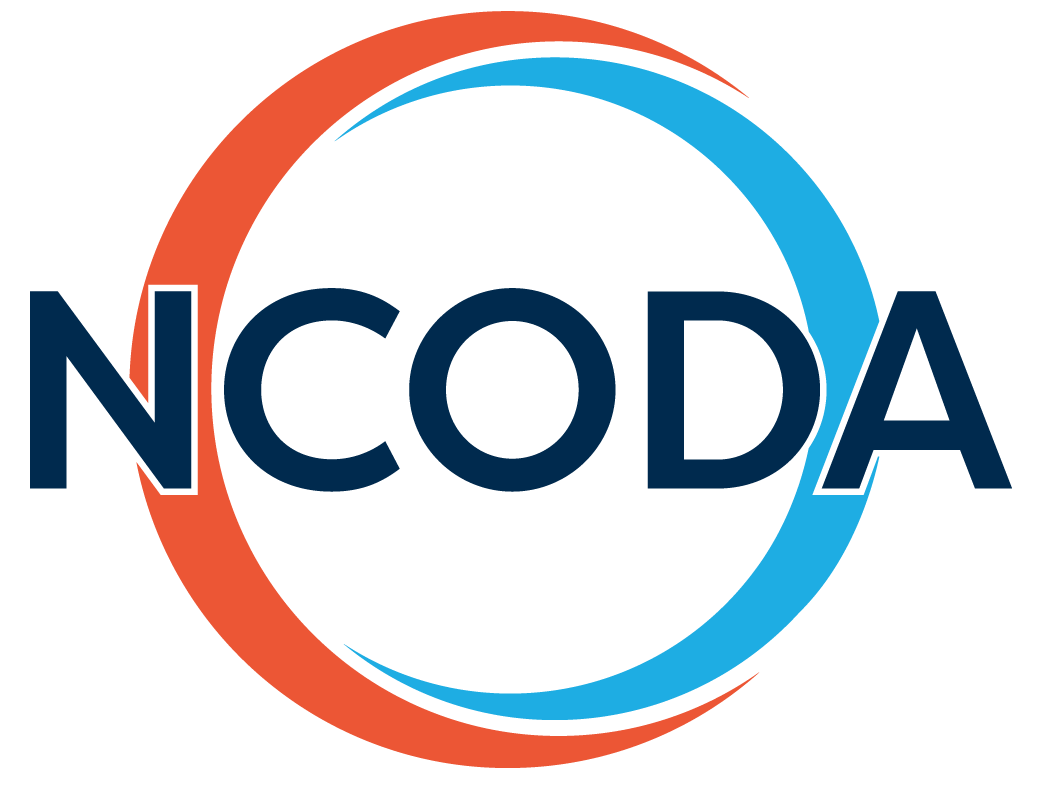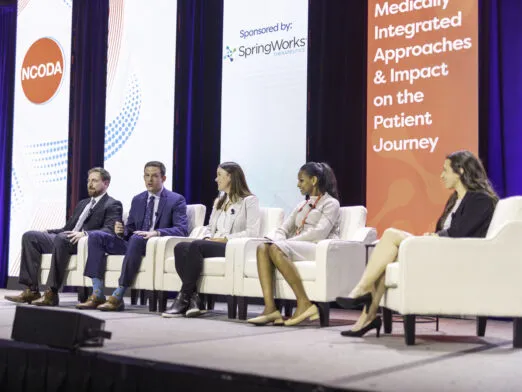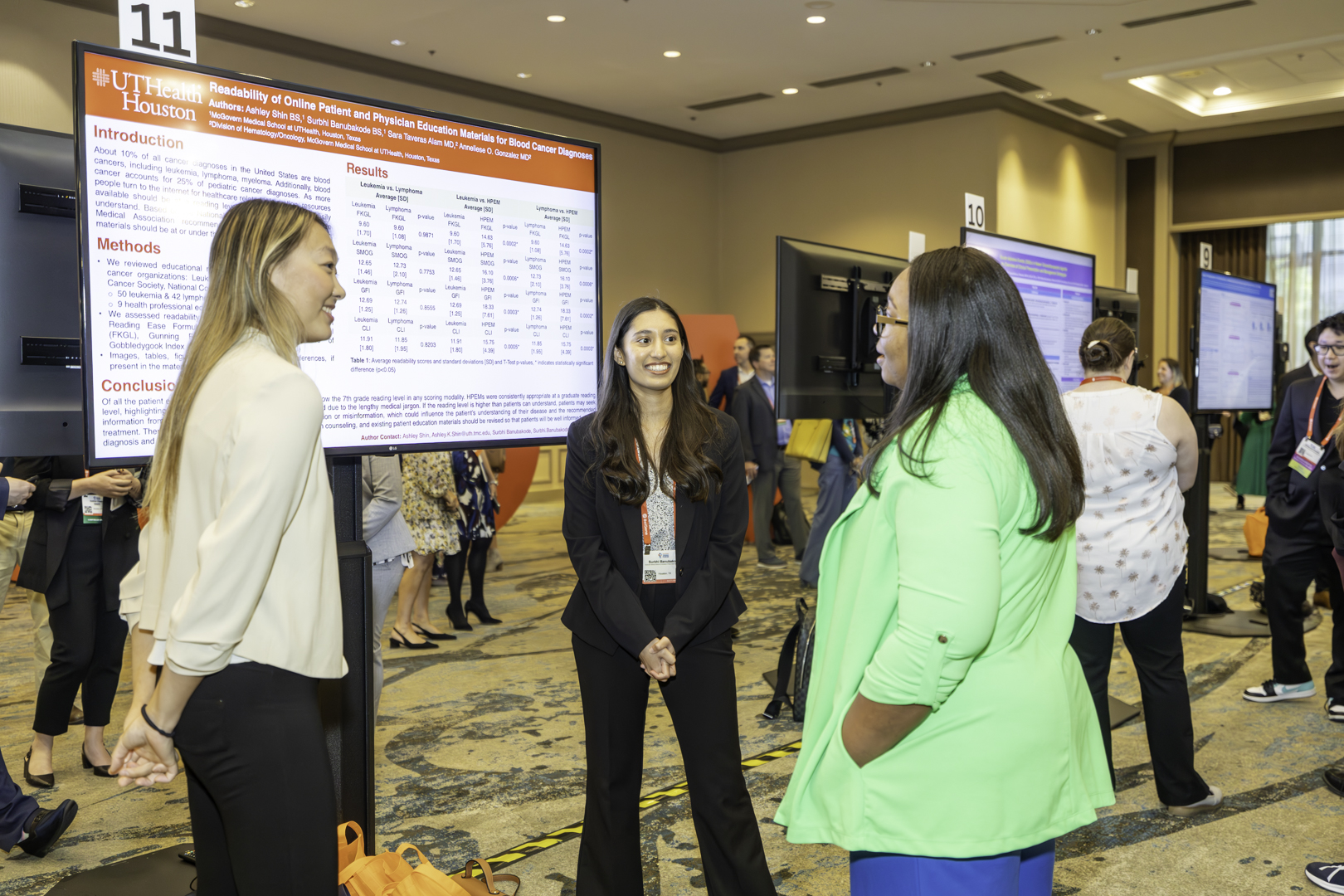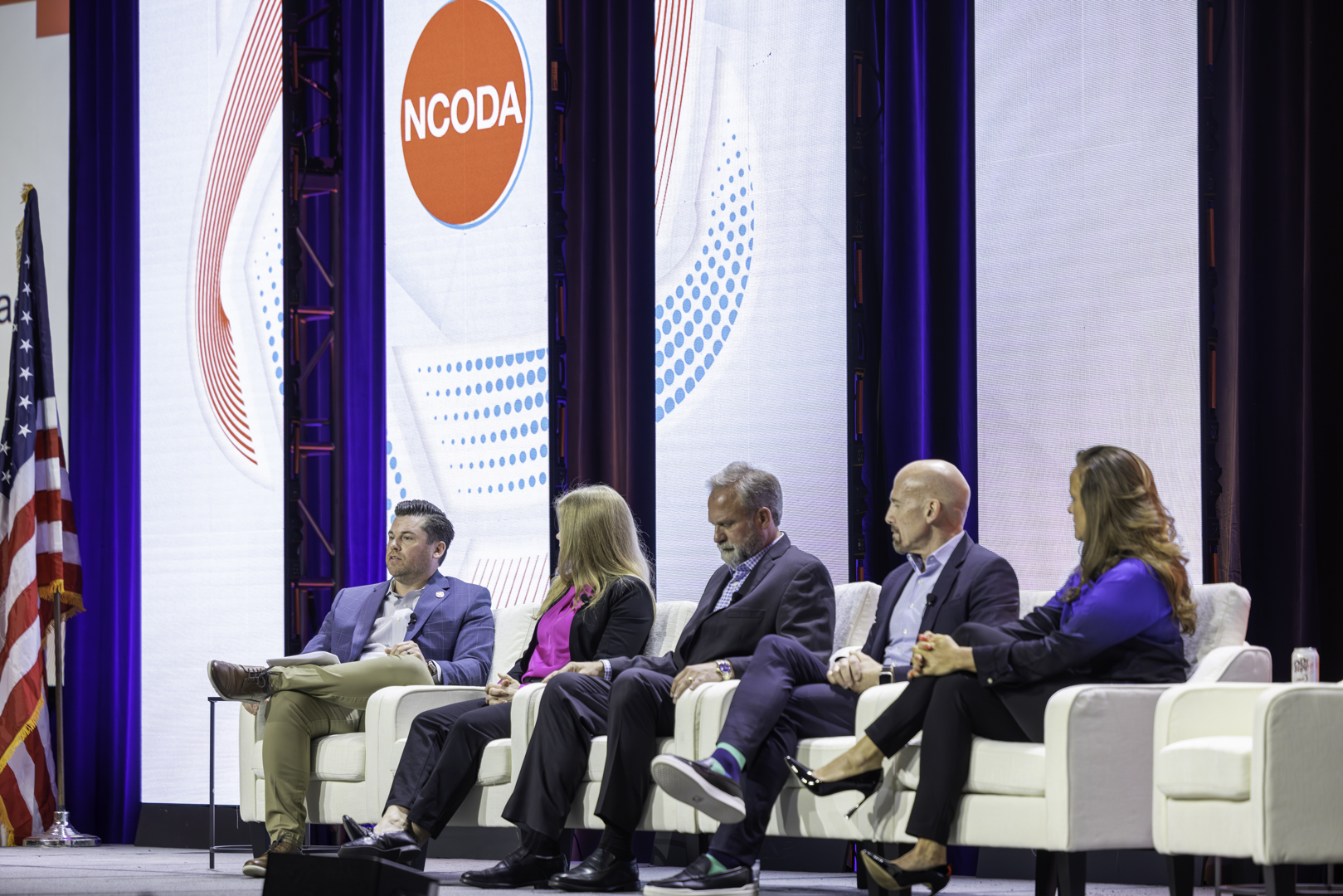Immunotherapy Hub
Whether you’re just beginning to explore bispecific T-cell engagers—often called “BiTEs” or “bispecifics”—or looking for in-depth, practice-ready tools, you’ve come to the right place. Our curated resources are designed to support the safe, effective implementation of BTCE therapies across a range of clinical settings. From foundational overviews to agent-specific insights and downloadable SOPs, this hub empowers your team to deliver high-quality, coordinated care.

Resources for Bispecific T-Cell Engagers
Explore the world of bispecific T-cell engagers (BTCE), also known as “bispecifics” or “BiTEs,” with our NCODA resources. Learn how to implement these agents in any clinical setting. Access agent-specific resources for a closer look at individual therapies and access valuable example standard operating procedures (SOPs) from real practices.
Our resources are divided into 3 main sections:
- Overview of BTCEs
- Agent-Specific Resources
- Example SOPs and Documents
Overview of BTCEs
An overview of how these agents’ function, their dosing schedules, notable side effects, and the Risk Evaluation and Mitigation Strategies (REMS) requirements for certain agents.
A guide for operationalizing BTCEs in your practice.
A focus on clarifying terminology and highlighting the differences between observation periods and supportive care.
Agent-Specific Resources
Discover more about blinatumomab (BLINCYTO®).
Discover more about elranatamab-bcmm (ELREXFIO™).
Discover more about epcoritamab-bysp (EPKINLY®).
Discover more about glofitamab-gxbm (COLUMVI™).
Discover more about mosunetuzumab-axgb (LUNSUMIO™).
Discover more about talquetamab-tgvs (TALVEY®).
Discover more about tarlatamab-dlle (IMDELLTRA™).
Discover more about tebentafusp-tebn (KIMMTRAK®).
Discover more about teclistamab-cqyv (TECVAYLI®).
Example SOPs and Documents
We’re excited to share sample protocols, procedures, and resources from our members! While these resources are de-identified, we’ve highlighted details about the clinic or hospital size and any unique features about the document to help you find the right fit for your institution.
There’s no one-size-fits-all approach, so take a closer look and discover what works best for your practice.
Note: NCODA makes no warranties of any kind whatsoever regarding their content, use, or application and disclaims any responsibility for their application or use in any way.
Education
- Patient Education (Mid-sized, Partially integrated, Community Cancer Clinic) coming soon
Inpatient Use of BTCE
Management of Adverse Reactions
- Cytokine Release Syndrome
-
- Bispecific T-Cell Engager Associated Cytokine Release Syndrome (CRS) Management (Large Academic Medical Center) coming soon
- Neurotoxicity
-
- Bispecific T-Cell Engager Neurotoxicity Management (Mid-sized, Rural Community Cancer Clinic) coming soon
On-Call and Triaging Practices
- On-Call Responsibilities for Nurses Managing Bispecific T-Cell Engagers (Mid-sized, Community Cancer Clinic) coming soon
Ordering and Billing
- Bispecific T-cell Engager Billing Procedure (Mid-sized, Community Cancer Clinic) coming soon
Transitioning Patients
- Transitioning Patients on Bispecific T-Cell Engagers Between Care Settings (Mid-sized, Partially Integrated, Community Cancer Clinic) coming soon
Recommended Reading
Acknowledgements
We extend our heartfelt gratitude to all individuals who contributed to the development of these resources, whether through sharing examples of their practices, participating in meetings to discuss their expertise, or providing invaluable insights; your involvement has been instrumental to our success.
Key insights that helped in development of these resource were provided by: Allison Mendoza, PharmD; Bob Phelan, RPh; Bradley Yelvington, PharmD, BCOP; Brooke Adams, PharmD, BCOP; Corey Jordan, PharmD; Eden A Biltibo, MD, MSCI; Emilie Aschenbrenner, PharmD, BCOP; Jane Osterson, RN; Justin Konkol, PharmD, BCPS, DPLA; Joyce Wong, MD; Kevin Krueger, PharmD, MBA; Kirollos Hanna, PharmD, BCPS, BCOP, FACCC, FAPO; Maddie Koppin, PharmD; Melinda Rhoades, PharmD, BCOP; Mike Seppelfrick, PharmD; Man-Yee Merl, PharmD, BCOP; Nick Bouchard, PharmD; Sam Abdelghany, PharmD, MHA, BCOP; Stephen Clark, PharmD, BCOP; Zahra Mahmoudjafari, PharmD, MBA, BCOP, FHOPA






